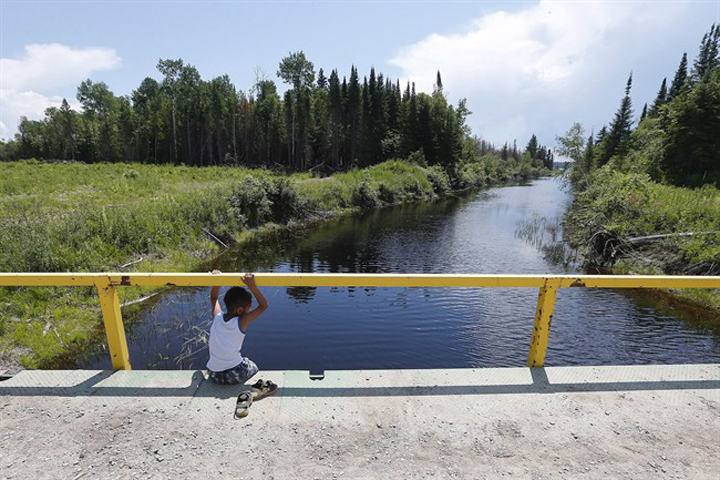WINNIPEG – The campaign to help an isolated reserve that has been without clean water for almost two decades is intensifying as churches and musicians join leaders of Canada’s opposition parties in a call for action.

Shoal Lake 40 First Nation — which straddles the Ontario-Manitoba boundary — was cut off from the mainland a century ago when an aqueduct was built to supply fresh water to Winnipeg. The reserve has no all-weather road and has been under one of the longest boil-water advisories in Canada.
A multi-faith group in Winnipeg is kicking off 10 days of action in support of the reserve on Friday.
Lynda Trono, community minister with West Broadway Community Ministry, said people are appalled the federal government has refused to help fund construction of a much-needed road.
READ MORE: The price of Winnipeg’s water: A First Nation’s misery
“We really are outraged by this refusal of the federal government to recognize a human right for an indigenous community,” she said. “I’m still in disbelief about how you can apologize to First Nations, go through a truth and reconciliation process and then deny a community access to fresh water with a road.”
The city of Winnipeg, government of Manitoba and the federal government are sharing the cost of a $3-million design study for a road. Winnipeg and Manitoba have also committed to funding construction of the road.

Get weekly health news
Natural Resources Minister Greg Rickford, the MP for the Shoal Lake 40 area, left residents in tears last month when he visited the band but refused to make the same commitment. A crowdfunding campaign is attempting to raise Ottawa’s estimated $10-million share of road construction costs.
Liberal Leader Justin Trudeau and NDP Leader Tom Mulcair both criticized the federal Conservatives earlier this week for their failure to commit to Freedom Road, as it is called by residents.
READ MORE: Shoal Lake 40 First Nation by the numbers
Reserve residents have said that every year people risk their lives walking across the ice trying to get to their front door. Some have died. The aging ferry that residents rely on in the summer temporarily failed to pass government inspection in the spring, which prompted the reserve to declare a state of emergency.
“It’s just in-your-face awful,” Trono said.
The group is rolling out a “road-like” letter as long as a city block for people to sign. Plans are to send it to Prime Minister Stephen Harper. A large thank-you card for the reserve is also being circulated for Winnipeg residents to sign.
A website is planned where churches across Canada can upload photos of signs declaring support for the reserve. A collage of the signs is to be sent to every Canadian MP.
Canadian Christian musician Steve Bell has written a song dedicated to the First Nation and is asking fans to sign a petition to correct “a shameful situation.”
An all-weather road which ensures people can safely make it to their front door is “not too much to ask,” he said.
“If we can’t do this, we can’t do anything. There can be a lot of power in this for healing. There can be a lot of power in this for further damage.”
Emily Hillstrom, spokeswoman for Aboriginal Affairs Minister Bernard Valcourt, declined to comment on the campaign. She instead referred to an emailed statement sent several days ago which said a “decision on funding the road itself will be made when that design study is completed.”







Comments
Comments closed.
Due to the sensitive and/or legal subject matter of some of the content on globalnews.ca, we reserve the ability to disable comments from time to time.
Please see our Commenting Policy for more.